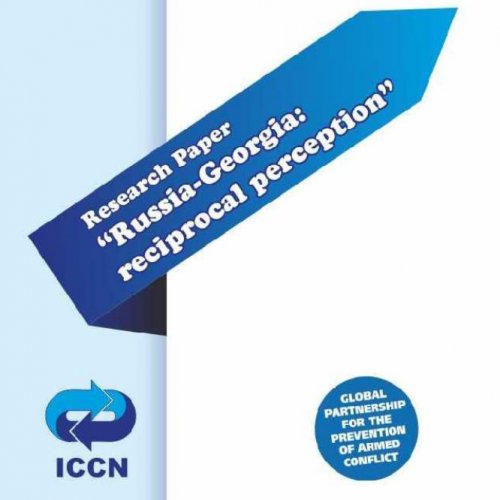Research Paper “Russia-Georgia: reciprocal perception”
Tbilisi 2013
Empirical Study “Perception of Georgia and Georgians in the Russian Society” was conducted within the frames of the program funded by the Global Partnership for the Prevention of Armed Conflicts. The survey was carried out by the Carnegie Moscow Center in 2012.
Back in 2008 when the conflict between Russia and Georgia broke out, International Centre on Conflict and Negotiation initiated the most long-standing of dialogue efforts between Russian and Georgian high-profile political experts, named later, as per the site of the meetings, the Istanbul Process. GPPAC, as a global network of civil society organisations, working across conflicts on an international level, and perceived as being able to play an impartial role in facilitating the dialogue processes, supported and partnered this important initiative, offering a framework that provided the needed, politically neutral,environment for the Russian and Georgian sides to engage with each other.
The first meeting was organised in Istanbul in November 2008 with Georgian and Russian participants selected among respected civil society leaders, recognised academics, as well as former government and diplomatic officials – all prominent political experts and opinion leaders in their societies. The meeting constituted the first direct cross-border exchange of positions and opinions between the Georgian and Russian sides since the August 2008 war and marked the beginning of what then shaped into a long term process of exchange concerning the fundamental causes of the conflict and analysis of ongoing political developments.
Substantial change of political environment related to Russia-Georgia relationships since the October 2012 Parliamentary elections in Georgia, allowed for the first time that the dialogue has a change of raising from track-two (strictly non-governmental) to track one-and a-half (including informal participation of governmental and political figures). The prospect of political negotiations on broad spectrum of issues, not yet crossing the ‘red lines’ in bilateral relations is gradually shaping. Being longest-living among all the efforts so far done to develop a dialogue between Russian and Georgian high profile experts, the Istanbul Process contains serious potential for its development. The immediate plans include, apart from the international meetings and discussions, further joint sociological surveys and studies.



